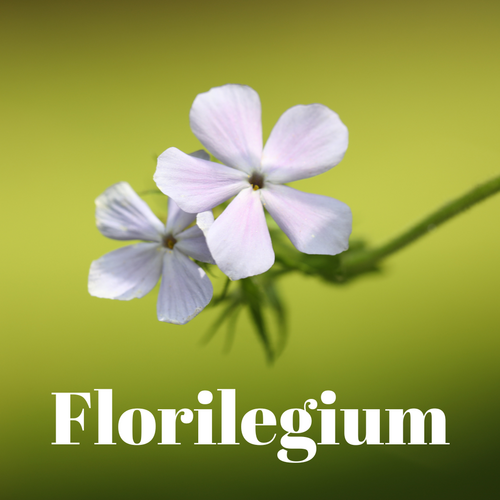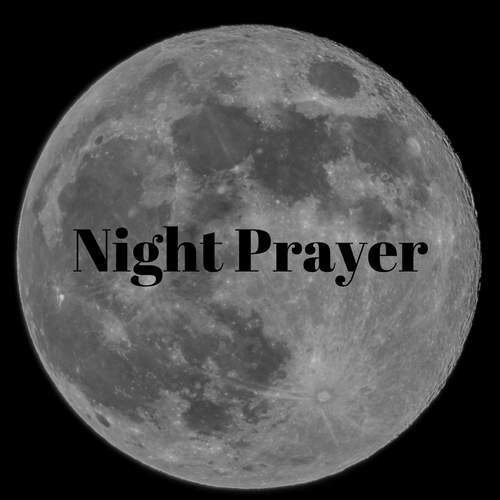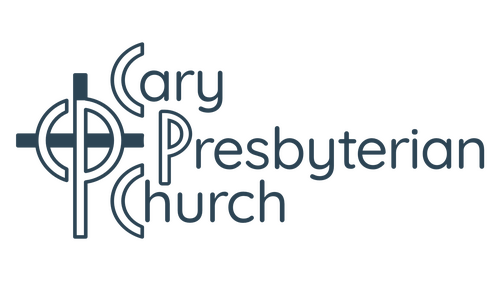

Daily Primer — August 9, Glasgow — Scotland
Each day you will be given:
A Florilegium entry
A Daily Prayer
and a Night Prayer.
A Florilegium entry
A Daily Prayer
and a Night Prayer.

Psalm 127:1-2 A Song of Ascents.
1 Unless the LORD builds the house,
those who build it labor in vain.
Unless the LORD guards the city,
the guard keeps watch in vain.
2 It is in vain that you rise up early
and go late to rest,
eating the bread of anxious toil;
for he gives sleep to his beloved.
I love this Psalm. It has been a spiritual companion to me since the late 1990s when I first encountered it. In fact, this is a Psalm I read and prayed over every day for a year. That was a discipline I once kept — to let a Psalm choose me and to then make it my daily companion for a year, waiting for God to speak to me day-by-day. This Psalm spoke to me at a time when I was working very hard — completing my doctoral degree, raising two small boys with my wife Sarah, and serving as pastor to a strong and vibrant congregation in eastern North Carolina. In fact, I was probably working a little bit too hard and on top of that taking a little too much credit for the progress being made.
Even though things were, on one level, going well. In truth, I was rapidly approaching burn-out professionally, and clinical depression emotionally. After nearly six years working on my Doctor of Ministry degree the dean of advanced studies had finally lost patience with me and had written the year before to say, “If you are not finished by next May, you cannot complete the degree.” So I began arising at 4 AM every day to work on my doctoral project from 4-8 AM and then I went in to work. I was finally making good headway in my school work . . . but at a cost. And then, in God’s providence, I heard my friend Ben Johnson mention that he sometimes spent a whole year with a Psalm and I went in search of a Psalm to be my daily companion. When I read Psalm 127 verses 1 & 2 I felt as if God was speaking them directly into my heart. “Why do you rise up early, and go late to your rest, eating the bread of anxious toil? Do you not know that God gives blessings to those who sleep?” [my translation/paraphrase-PHL]
A year’s worth of pondering this Psalm cannot be contained in this little entry about being “on the way.” But I will say this. In a world which measures a person’s worth by two things:
1) how much they produce, and
2) how much they consume
and which promotes the necessity of the arms-race between those on the “inside” versus those on the “outside,” it seems to me that Psalm 127:1-2 offers a startling critique and alternative possibility to the status quo.
I see this now more than ever as the pastor of a downtown, urban congregation. The clients who come to our door at church are people who neither produce much, nor do they consume much — which in a consumer/capitalist system relegates them to the status of the invisible. The culture at large does not value them because they do not produce and they have no purchasing power to exercise.
I come from a long line of Lang-men who might be briefly described as “hyper-achieving and desperately unhappy.” I don’t want to be too critical here — I only want to observe that as the family’s historian, I can tell you multiple generations of stories about Lang-men who both produced much and consumed much and most of them found happiness to be elusive. I suppose that is why, in the midst of a hyper-productive time in my life, this Psalm hit me so hard. It seemed to be screaming at me, “Why do you do this!? Why are you participating in the rat-race? Do you not realize that even if you win . . . you’ll still be a rat!?”
And let us not overlook verse one with its startling critique of wealth-accumulation/protection! That is the lie of affluence — it tells you that if you have enough (building a house), and you protect it well enough (keeping watch on the wall) which separates people who are “in” from those who are “out,” you will find the good life. But Psalm 127 posits the contrarian idea that only when the LORD is building is it worth building and only when the LORD is watching is it worth watching. The good-life, the life worth having is a life which yokes our building and our watching with the LORD. Matt. 11:28 “Come to me, all you that are weary and are carrying heavy burdens, and I will give you rest. 29 Take my yoke upon you, and learn from me; for I am gentle and humble in heart, and you will find rest for your souls. 30 For my yoke is easy, and my burden is light.” Indeed, the Lord gives blessings to those who rest.
So what is the connection to pilgrimage? I think the connection is the way in which this Psalm invites a departure from the status quo in favor of the status viatoris (the way of wandering). Our calling to depart on a life understood as “pilgrimage” often begins with a sense of longing. We hunger for something or feel the urge to search for something and, initially, we may not even know for sure what it is we seek. Sometimes in my life this has been a dissatisfaction with status quo. Something is “off” and I know I need to change or something in my setting is no longer leaving me contented.
Other times my sense of calling to live as a pilgrim has felt more like an attraction to the status viatoris. I feel the impulse to let my feet walk on unfamiliar paths and my eyes behold unfamiliar scenes. I am inclined to become a wayfarer and wanderer for the love of God. I want to let the lines of my sailboat slip through my hands and see where the wind and tide will take me if I do not try to control things. I have the sense that I am becoming someone new and my life has the “not yet” quality of feeling something coming into being within me.
Both the dissatisfaction and the inclination to seek lead me to embrace the paradox of setting out from my home in search of home. I feel myself waiting for something which eludes me, but I know that I cannot wait by only remaining “still.” I know that what is waiting for me is as much out there beyond my current horizons as it is something changing deep within me.
1 Unless the LORD builds the house,
those who build it labor in vain.
Unless the LORD guards the city,
the guard keeps watch in vain.
2 It is in vain that you rise up early
and go late to rest,
eating the bread of anxious toil;
for he gives sleep to his beloved.
I love this Psalm. It has been a spiritual companion to me since the late 1990s when I first encountered it. In fact, this is a Psalm I read and prayed over every day for a year. That was a discipline I once kept — to let a Psalm choose me and to then make it my daily companion for a year, waiting for God to speak to me day-by-day. This Psalm spoke to me at a time when I was working very hard — completing my doctoral degree, raising two small boys with my wife Sarah, and serving as pastor to a strong and vibrant congregation in eastern North Carolina. In fact, I was probably working a little bit too hard and on top of that taking a little too much credit for the progress being made.
Even though things were, on one level, going well. In truth, I was rapidly approaching burn-out professionally, and clinical depression emotionally. After nearly six years working on my Doctor of Ministry degree the dean of advanced studies had finally lost patience with me and had written the year before to say, “If you are not finished by next May, you cannot complete the degree.” So I began arising at 4 AM every day to work on my doctoral project from 4-8 AM and then I went in to work. I was finally making good headway in my school work . . . but at a cost. And then, in God’s providence, I heard my friend Ben Johnson mention that he sometimes spent a whole year with a Psalm and I went in search of a Psalm to be my daily companion. When I read Psalm 127 verses 1 & 2 I felt as if God was speaking them directly into my heart. “Why do you rise up early, and go late to your rest, eating the bread of anxious toil? Do you not know that God gives blessings to those who sleep?” [my translation/paraphrase-PHL]
A year’s worth of pondering this Psalm cannot be contained in this little entry about being “on the way.” But I will say this. In a world which measures a person’s worth by two things:
1) how much they produce, and
2) how much they consume
and which promotes the necessity of the arms-race between those on the “inside” versus those on the “outside,” it seems to me that Psalm 127:1-2 offers a startling critique and alternative possibility to the status quo.
I see this now more than ever as the pastor of a downtown, urban congregation. The clients who come to our door at church are people who neither produce much, nor do they consume much — which in a consumer/capitalist system relegates them to the status of the invisible. The culture at large does not value them because they do not produce and they have no purchasing power to exercise.
I come from a long line of Lang-men who might be briefly described as “hyper-achieving and desperately unhappy.” I don’t want to be too critical here — I only want to observe that as the family’s historian, I can tell you multiple generations of stories about Lang-men who both produced much and consumed much and most of them found happiness to be elusive. I suppose that is why, in the midst of a hyper-productive time in my life, this Psalm hit me so hard. It seemed to be screaming at me, “Why do you do this!? Why are you participating in the rat-race? Do you not realize that even if you win . . . you’ll still be a rat!?”
And let us not overlook verse one with its startling critique of wealth-accumulation/protection! That is the lie of affluence — it tells you that if you have enough (building a house), and you protect it well enough (keeping watch on the wall) which separates people who are “in” from those who are “out,” you will find the good life. But Psalm 127 posits the contrarian idea that only when the LORD is building is it worth building and only when the LORD is watching is it worth watching. The good-life, the life worth having is a life which yokes our building and our watching with the LORD. Matt. 11:28 “Come to me, all you that are weary and are carrying heavy burdens, and I will give you rest. 29 Take my yoke upon you, and learn from me; for I am gentle and humble in heart, and you will find rest for your souls. 30 For my yoke is easy, and my burden is light.” Indeed, the Lord gives blessings to those who rest.
So what is the connection to pilgrimage? I think the connection is the way in which this Psalm invites a departure from the status quo in favor of the status viatoris (the way of wandering). Our calling to depart on a life understood as “pilgrimage” often begins with a sense of longing. We hunger for something or feel the urge to search for something and, initially, we may not even know for sure what it is we seek. Sometimes in my life this has been a dissatisfaction with status quo. Something is “off” and I know I need to change or something in my setting is no longer leaving me contented.
Other times my sense of calling to live as a pilgrim has felt more like an attraction to the status viatoris. I feel the impulse to let my feet walk on unfamiliar paths and my eyes behold unfamiliar scenes. I am inclined to become a wayfarer and wanderer for the love of God. I want to let the lines of my sailboat slip through my hands and see where the wind and tide will take me if I do not try to control things. I have the sense that I am becoming someone new and my life has the “not yet” quality of feeling something coming into being within me.
Both the dissatisfaction and the inclination to seek lead me to embrace the paradox of setting out from my home in search of home. I feel myself waiting for something which eludes me, but I know that I cannot wait by only remaining “still.” I know that what is waiting for me is as much out there beyond my current horizons as it is something changing deep within me.
PHL — a blog entry from Stillpoint.
Florilegium is the Medieval Latin word for bouquet, or more literally flowers (flos, flor-) which are gathered (legere). The word florilegium was used to refer to a compilation of writings, often religious or philosophical. These florilegium are literary flowers—beautiful words/prayers/thoughts I have gathered. During my sabbatical they will give me something to ponder each day. — PHL.

Journey Prayer
The benison of God be to thee,
The benison of Christ be to thee,
The benison of Spirit be to thee,
And to thy children,
To thee and to thy children.
The peace of God be to thee,
The peace of Christ be to thee,
The peace of Spirit be to thee,
During all thy life, All the days of thy life.
The keeping of God upon thee in every pass,
The shielding of Christ upon thee in every path,
The bathing of Spirit upon thee in every stream,
In every land and sea thou goest.
The benison of God be to thee,
The benison of Christ be to thee,
The benison of Spirit be to thee,
And to thy children,
To thee and to thy children.
The peace of God be to thee,
The peace of Christ be to thee,
The peace of Spirit be to thee,
During all thy life, All the days of thy life.
The keeping of God upon thee in every pass,
The shielding of Christ upon thee in every path,
The bathing of Spirit upon thee in every stream,
In every land and sea thou goest.
Carmina Gadelica: Hymns & Incantations collected in the Highlands and Islands of Scotland, Alexander Carmichael.

Let me bless Almighty God, whose power extends over sea and land,
whose angels watch over all.
Let me study sacred books to calm my soul; I pray for peace, kneeling at heaven’s gates.
Let me do my daily work, gathering seaweed, catching fish, giving food to the poor.
Let me say my daily prayers, sometimes chanting, sometimes quiet, always thanking God.
Delightful it is to live on a peaceful Island, in a quiet cell, serving the King of kings.
whose angels watch over all.
Let me study sacred books to calm my soul; I pray for peace, kneeling at heaven’s gates.
Let me do my daily work, gathering seaweed, catching fish, giving food to the poor.
Let me say my daily prayers, sometimes chanting, sometimes quiet, always thanking God.
Delightful it is to live on a peaceful Island, in a quiet cell, serving the King of kings.
A Prayer of Saint Columba — Van de Weyer, ed. p.64 Celtic Fire: the Passionate Religious Vision of Ancient Britain and Ireland.
